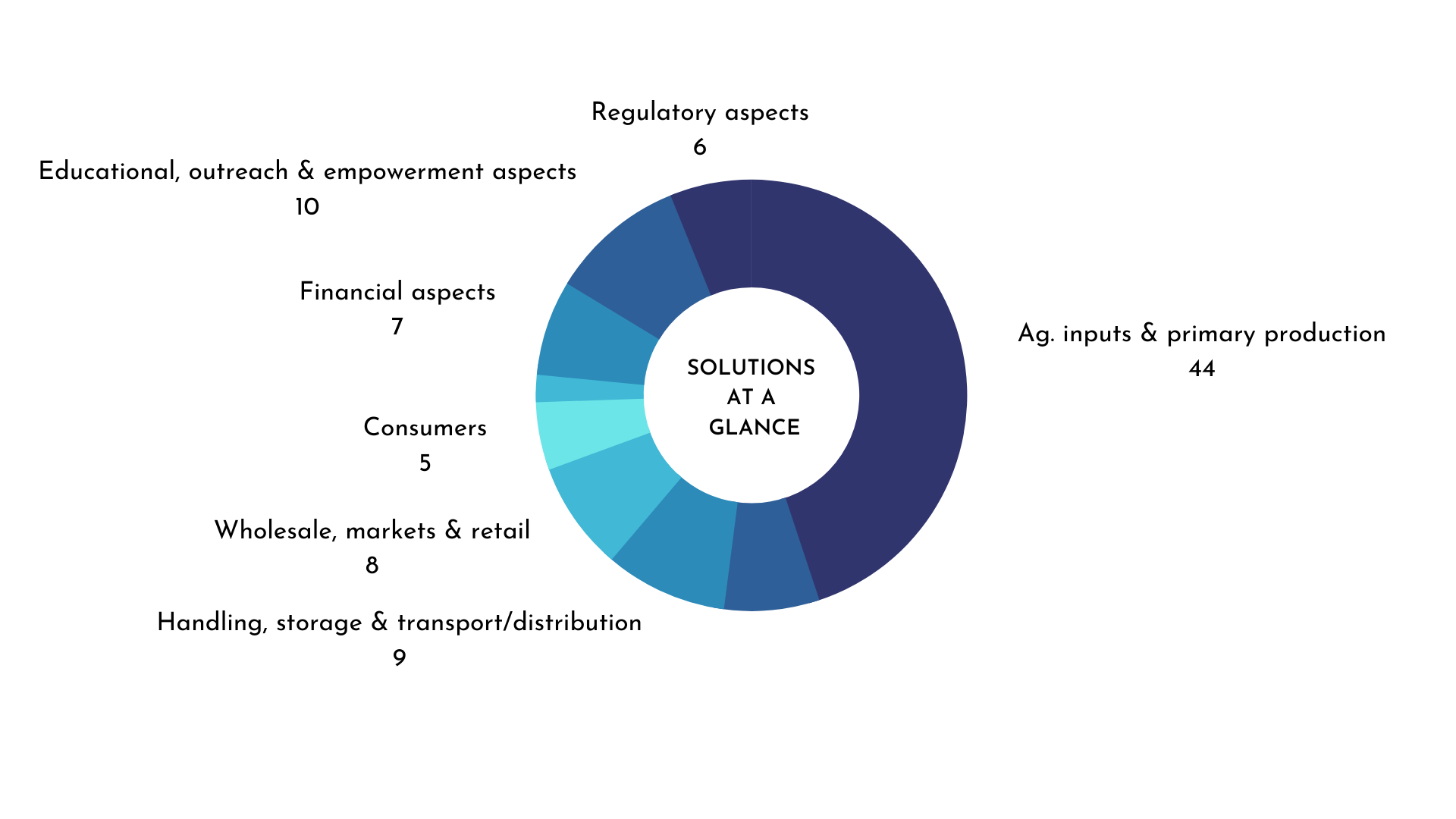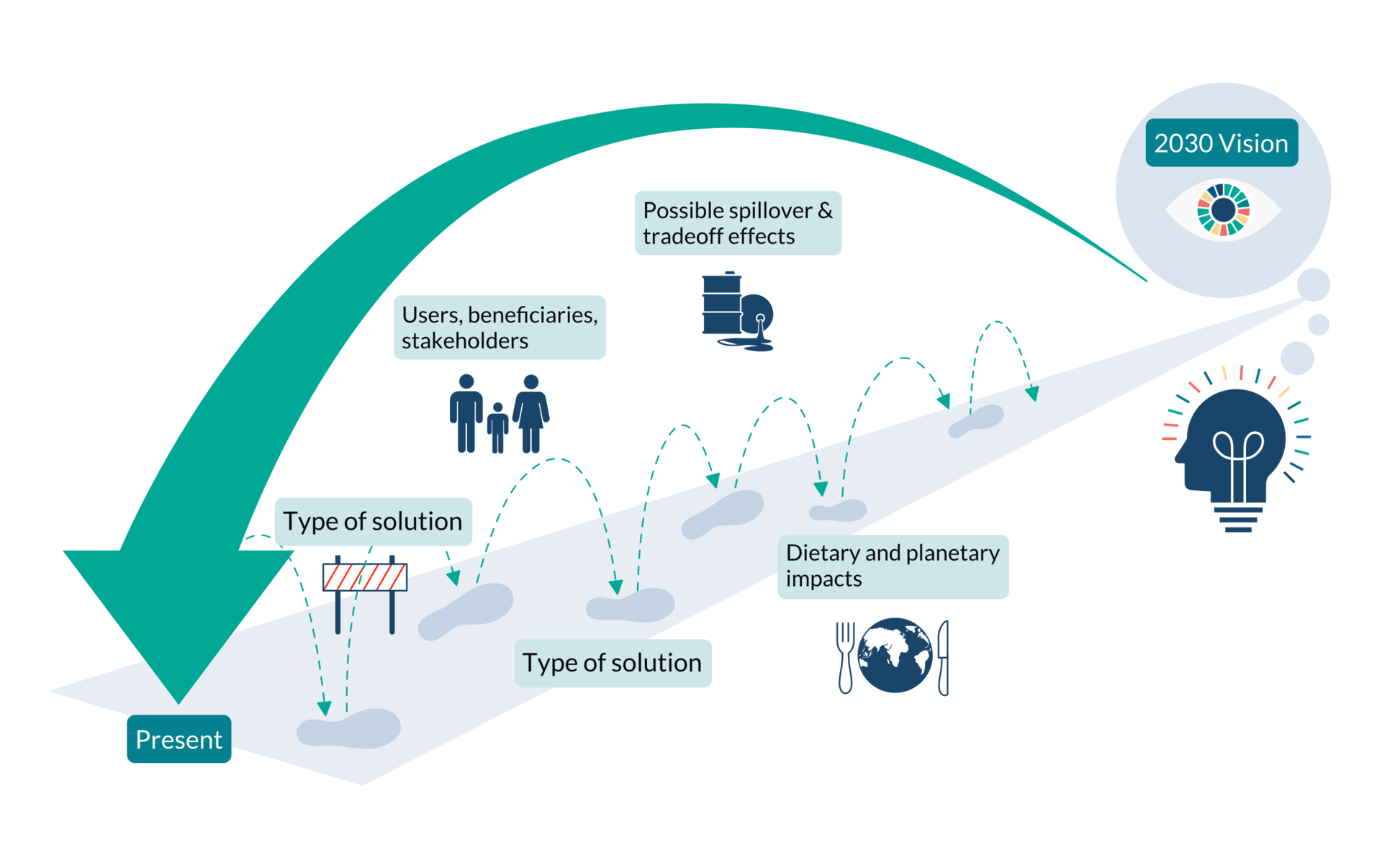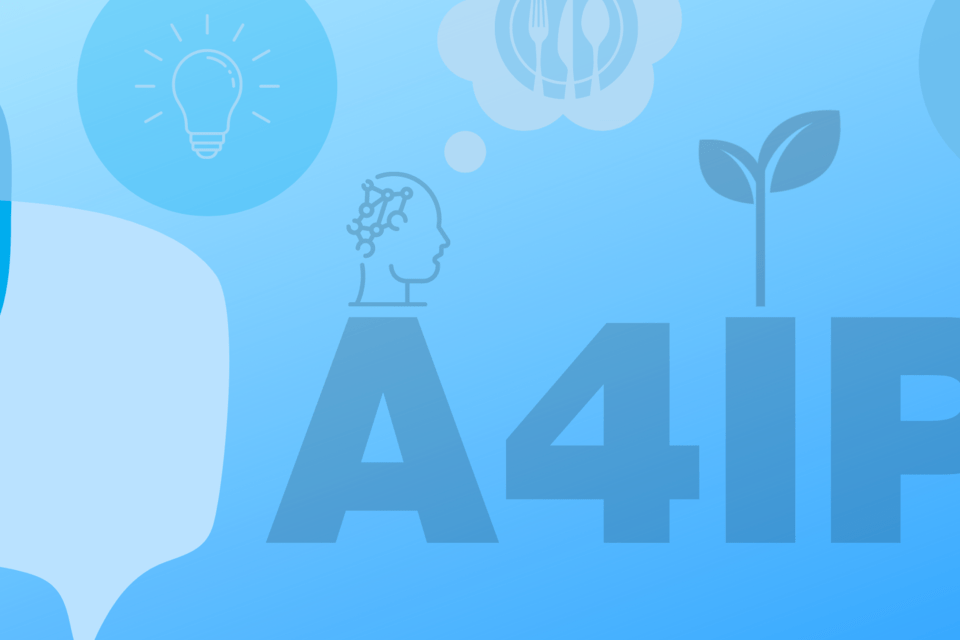Blog CGIAR Accelerate for Impact Platform & IFSS Portal offer startups a self-guided acceleration program

Resources made available by the Accelerate for Impact Platform and Innovative Food Systems Solutions portal help innovators, like the applicants to the 2021 Agrobiodiversity Innovation Challenge, scale their solutions for positive impact.
On January 17, the CGIAR Accelerate for Impact Platform (A4IP) and the Innovative Food System Solutions (IFSS) portal teams co-hosted an in-depth orientation session for the Agrobiodiversity Innovation Challenge 2021 participants. The goal was to help innovators identify and map out next steps in taking their food system solutions to scale for positive impact. Thirty-six participants from across the food system participated in the session, representing entrepreneurs, researchers, students, NGOs, and activists from Africa, Asia, Europe and the Americas.
In the first half of the session, Megan Steele, A4IP Partnerships Support, introduced A4IP as CGIAR's venture-focused Research for Development space designed to co-design and scale agriculture and climate change science-based breakthrough technologies as well as make sure that solutions are accessible to all.
The IFSS portal initiative was then introduced by Roseline Remans, Visiting Researcher at the Alliance of Bioversity International-CIAT. Heather Zornetzer, IFSS portal Coordinator and Sustainable Diets Researcher with the Alliance of Bioversity-CIAT, gave session participants a virtual tour of the IFSS portal to highlight how the website invites users across the food system - entrepreneurs, food producers, researchers, policy makers, businesses, students, NGOs, investors, and others - to explore innovative solutions, connect with funding, learn about upcoming events and opportunities, and access resources and tools that move solutions towards uptake and impact.

At a glance there are over 100 solutions included in the IFSS portal so far and these span the food supply chain - including policies, technologies, nature-based solutions, public/private collaborations, financial solutions, education, and social equity approaches.
In the second half of the session, innovators were introduced to the IFSS Backcasting process. Backcasting can help to clarify an impact vision at a particular point in the future and then support the process of working backwards from that time to identify concrete steps, key actors, key barriers (and strategies to overcome these barriers) and essential elements to help their innovative solutions have the impact they envision. Remans and Zornetzer walked participants through instructions and guidelines on how to use the interactive backcasting tool on the IFSS portal. Innovators can use this process to first imagine and communicate a desired scenario where their solution (or “package” of solutions) can have major positive impacts, then anticipate and address complex problems, affecting the many interrelated elements of taking an idea to scale, and finally to develop an actionable pathway to start from. A core focus of the IFSS portal is to prioritize multiple sustainability dimensions, including the impact of their innovations on the social (e.g., nutrition, equity), economic (livelihoods), and environmental domains (climate, biodiversity, water, soil, pollution). Participants were encouraged to reflect on how the impact of their innovative solution could be maximized by “bundling” it with other solutions to have a greater impact towards their vision for 2030.

The Backcasting process involves first defining a future vision of a solution used in a specific context, and then working backwards to identify necessary steps to achieve this vision. This exercise is meant to help stimulate multidisciplinary and multidimensional thinking around taking innovative solutions towards impact.
Session participants shared that they see the IFSS portal initiative to help increase the visibility of their innovations, and to connect and co-learnt with others - both innovators and possible funders - across the network of food system actors that are part of the portal community.
“The interactive self-guided acceleration framework is a valuable tool for early-stage innovations in their scaling journey. All food systems innovators are encouraged to take advantage of the IFSS portal resources to strengthen their own pathway to impact,”
says Gianpiero Menza, Senior Partnerships and & Innovative Finance Officer at CGIAR.
A recording of the orientation is openly available on the Accelerate for Impact Platform's YouTube channel and more tools and resources are openly available directly on the IFSS portal website.
In addition, look out for A4IP’s upcoming activities, like the Agritech4Morocco innovation challenge: a partnership with the World Bank and local accelerator Impact Lab. Through several upcoming forums and working groups, A4IP will work to build an ecosystem of science-based innovations and support the entrepreneurial talents through technical support and by enabling linkages with CGIAR science.


